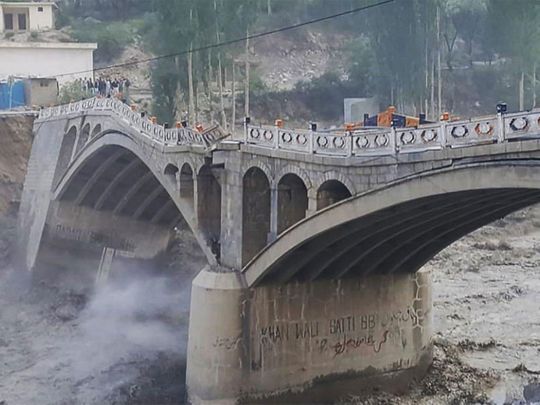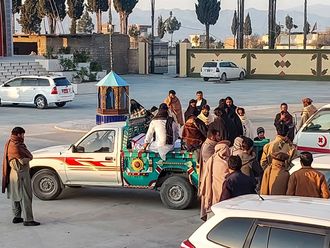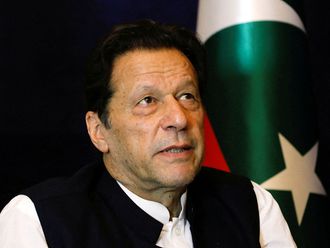
Hunza: A key bridge serving a remote corner of northern Pakistan has collapsed after a heatwave caused a glacial lake to burst and unleash flash flooding, the country's climate minister said.
Pakistan is highly vulnerable to climate change, ranking eighth in a table of countries most affected by extreme weather, according to a study by environmental group Germanwatch.
A spring heatwave is currently ravaging the nation of 220 million, with forecasters saying the mercury may rise to around 50 degrees Celsius (122 Fahrenheit) in some areas this week.
On Saturday, May 7, a bridge in the village of Hassanabad in the Gilgit-Baltistan region was destroyed by a "glacial lake outburst flood" triggered by soaring temperatures, climate minister Sherry Rehman said.
Such flooding occurs when glaciers melt at high speed and swell nearby lakes to unstable levels.
The lakes can then suddenly burst and set loose a violent cascade of water, ice and rocks.
Video shows the bridge - on the Karakoram Highway linking Pakistan and China - buckle and tumble into a river after its pillars are battered by the current.
Pakistan is home to more than 7,000 glaciers, more than anywhere outside the polar regions.
But Rehman has warned that glaciers in the north, including in the Himalayan and Hindu Kush mountain ranges, are "melting rapidly".
More than 3,000 glacial lakes have formed in Gilgit-Baltistan as well as Khyber Pakhtunkhwa in Pakistan's northwest, she said, and 33 are at risk of unleashing hazardous floods.
Rehman has said Pakistan's current heatwave "is a direct repercussion of climate stress".











